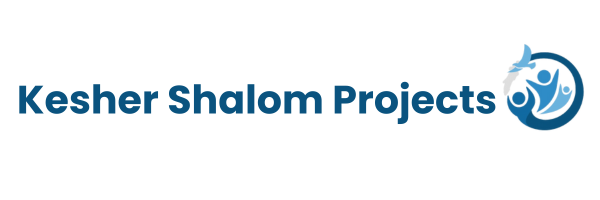Macro Gaslighting: When an Entire Community Is Told It’s Imagining the Harm
Gaslighting is often described as a manipulation tactic where one person causes another to doubt their memory, perception, or truth. But when this manipulation is scaled to target not just an individual but an entire community, it becomes something even more damaging: macro gaslighting.
Macro gaslighting is the systemic denial, distortion, and erasure of a marginalized group’s lived reality. It doesn’t require overt hatred; it functions through minimization, dismissal, and rewriting of experience. For the Jewish community, this psychological manipulation has become an all-too-familiar experience — and it’s intensifying.
It shows up in phrases that may seem harmless on the surface, but together form a pattern of deep invalidation: “She’s overreacting.” “He’s not someone to trust.” “They always cause the problem.” “She doesn’t need support.” “They’re crazy.” “They don’t belong here.” These aren’t just individual insults. They are echoes of something much larger — a narrative that delegitimizes Jewish voices, blames Jews for their own marginalization, and renders Jewish trauma inconvenient, exaggerated, or unworthy of recognition.
This form of gaslighting is also embedded in institutions and systems. We see widespread misinformation that reframes Jewish trauma as manipulation. We see the denial of collective experiences, where antisemitic incidents are downplayed or brushed aside as isolated. There is manipulation of public perception, with Jews portrayed as too powerful to be victims but too different to be included. Jews are reduced to conspiratorial symbols or blamed for the very hatred they face. Often, the Jewish story is left out entirely — excluded from diversity, equity, and inclusion efforts as if it no longer counts. Power dynamics are reinforced that reward silence and punish self-advocacy, sending the message that challenging antisemitism is disruptive, disloyal, or politically motivated.
The psychological impact of this is profound. When a community is exposed to constant invalidation, it doesn’t just feel misunderstood — it becomes destabilized. People begin to doubt themselves. They ask, “Am I imagining this?” “Is it really that bad?” “Will speaking up make things worse?” This internal questioning isn’t a sign of weakness; it’s a survival response. The body and mind begin to negotiate, constantly assessing whether authenticity is worth the risk.
For Jews — especially younger generations — this can result in chronic anxiety, emotional exhaustion, and deep identity fragmentation. Students remove Stars of David from their jewelry, take mezuzahs off their dorm room doors, and stay silent in classrooms and workplaces, unsure if being visibly Jewish will make them a target. Others internalize the gaslighting — downplaying their own fear, dismissing microaggressions, and second-guessing whether they can feel hurt. Over time, this kind of emotional suppression wears down not only individuals but entire communities.
The symptoms of macro gaslighting in a community are striking: erosion of self-trust, heightened hypervigilance, guilt over taking up space, generational tension between visibility and self-protection, and a slow silencing that doesn’t come from censorship, but from exhaustion. When a group begins to feel that truth is unsafe and their story is always up for debate, the long-term effect is disconnection from self, others, and the broader society that refuses to see them clearly.
But the consequences of macro gaslighting extend beyond the Jewish community. This pattern of invalidating trauma, erasing inconvenient truths, and manipulating public perception weakens the very foundation of collective ethics. When one group’s pain is dismissed, it sets the precedent that only certain kinds of suffering are legitimate. It creates a tiered system of empathy, where some are believed and others are not. In such a system, truth becomes negotiable. Eventually, the tools of gaslighting used by one group are turned on by others. The more a society normalizes erasing the reality of some, the more disconnected it becomes from justice itself.
Healing from macro gaslighting begins with naming it. With recognizing the patterns. With trusting the body’s cues — even when the world tells you to ignore them. It begins with saying: I am not imagining this. My pain is real. My experience matters. My identity is not a liability. We must reclaim our voice, resist the pressure to shrink, and stop apologizing for showing up whole.
We carry intergenerational trauma — yes. But we also carry intergenerational strength. We know what it is to survive distortion. And we also know how to reclaim clarity, connection, and truth.
Macro gaslighting thrives in silence. We disrupt it by speaking clearly, even when it’s uncomfortable. We heal by honoring our stories. We protect the future by refusing to disappear.
עם ישראל חי – Am Yisrael Chai. The Nation of Israel Lives.

